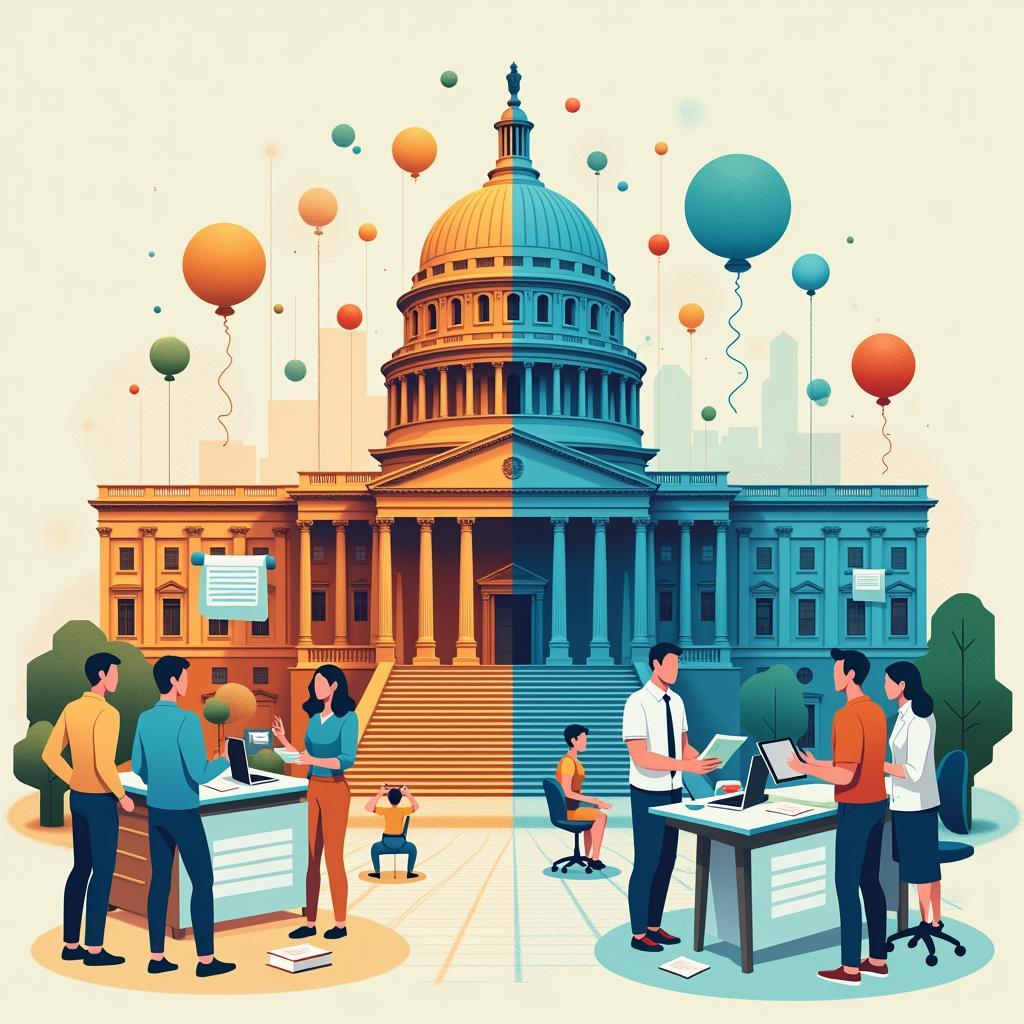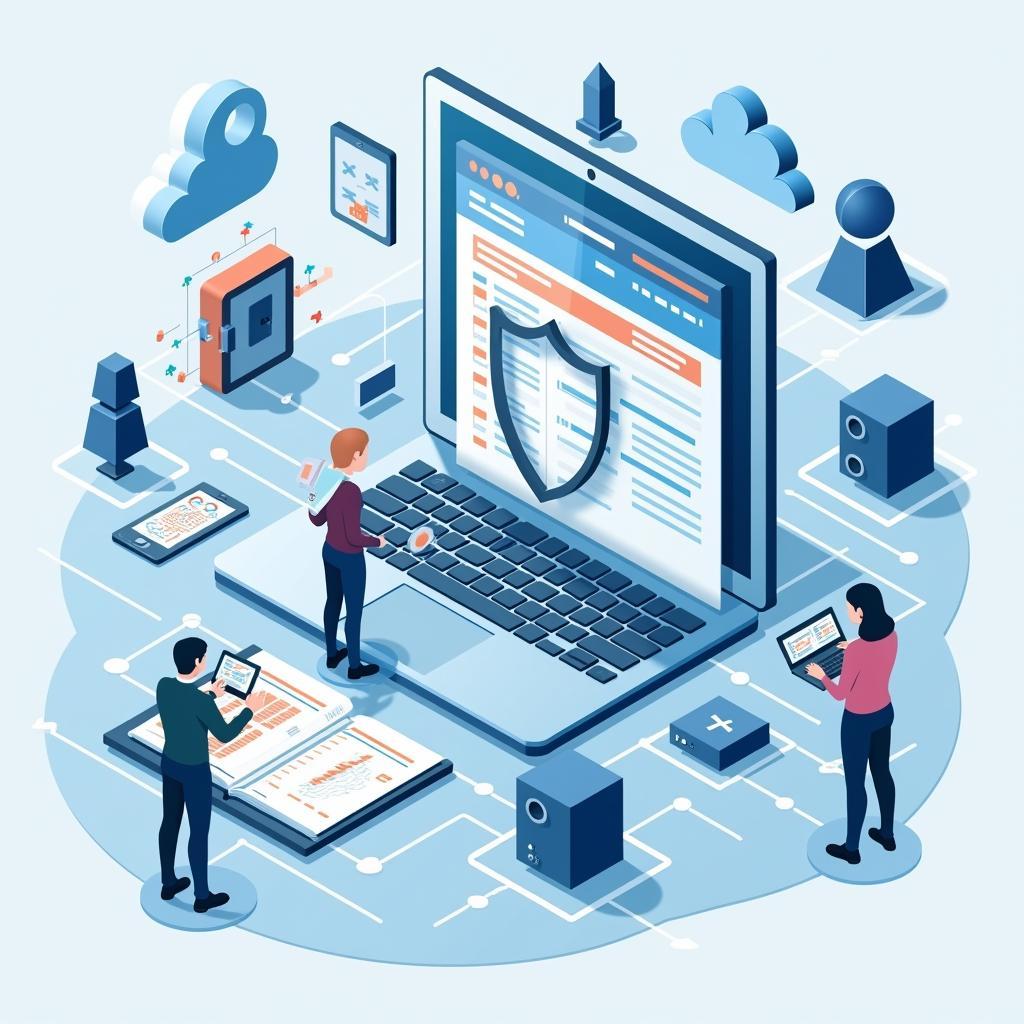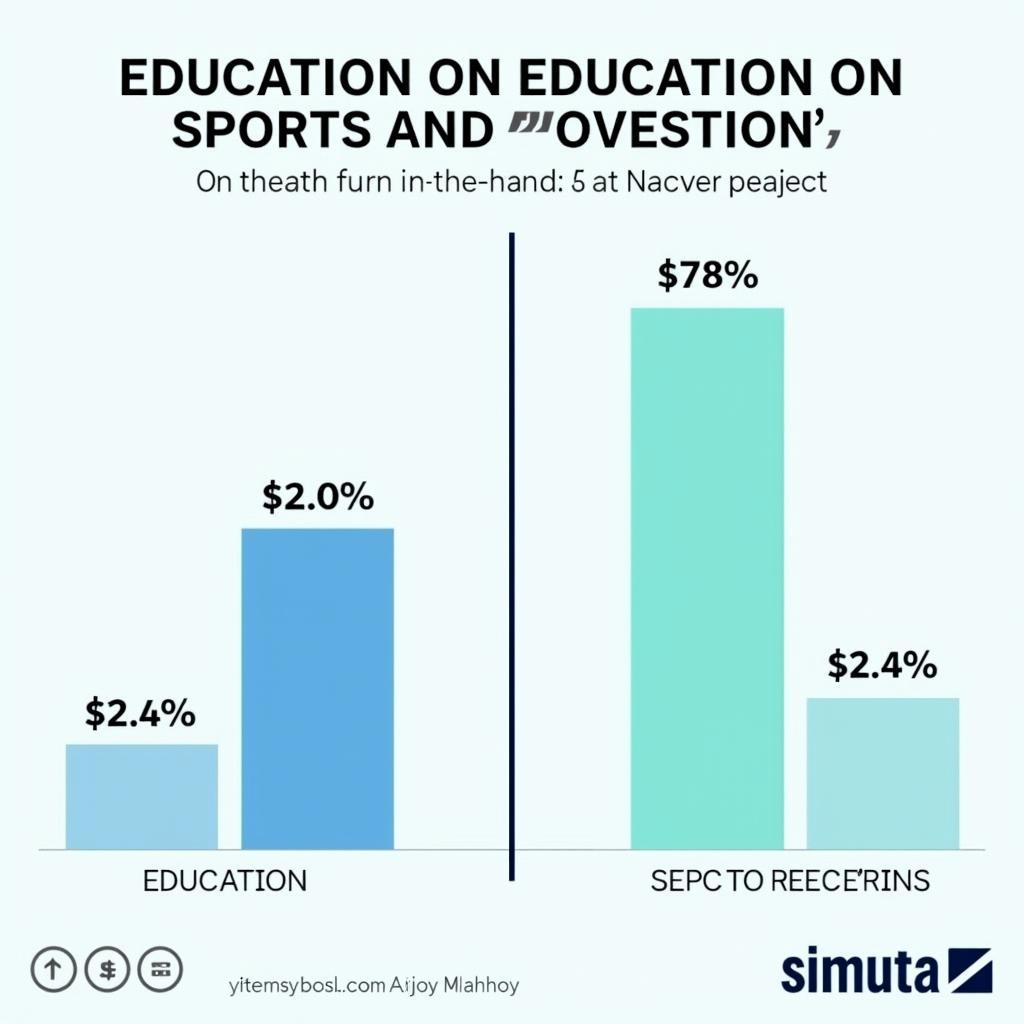The topic of artificial intelligence’s impact on creative industries has become increasingly prevalent in IELTS Writing Task 2 examinations. Based on recent test reports and analysis from major IELTS preparation websites, this theme has appeared multiple times in various forms over the past two years, particularly in Asia-Pacific test centers.
Table Of Contents
Let’s examine one frequently occurring question type:
Some people believe that artificial intelligence (AI) will eventually replace human artists, musicians, and writers. Others think AI can never match human creativity. Discuss both views and give your opinion.
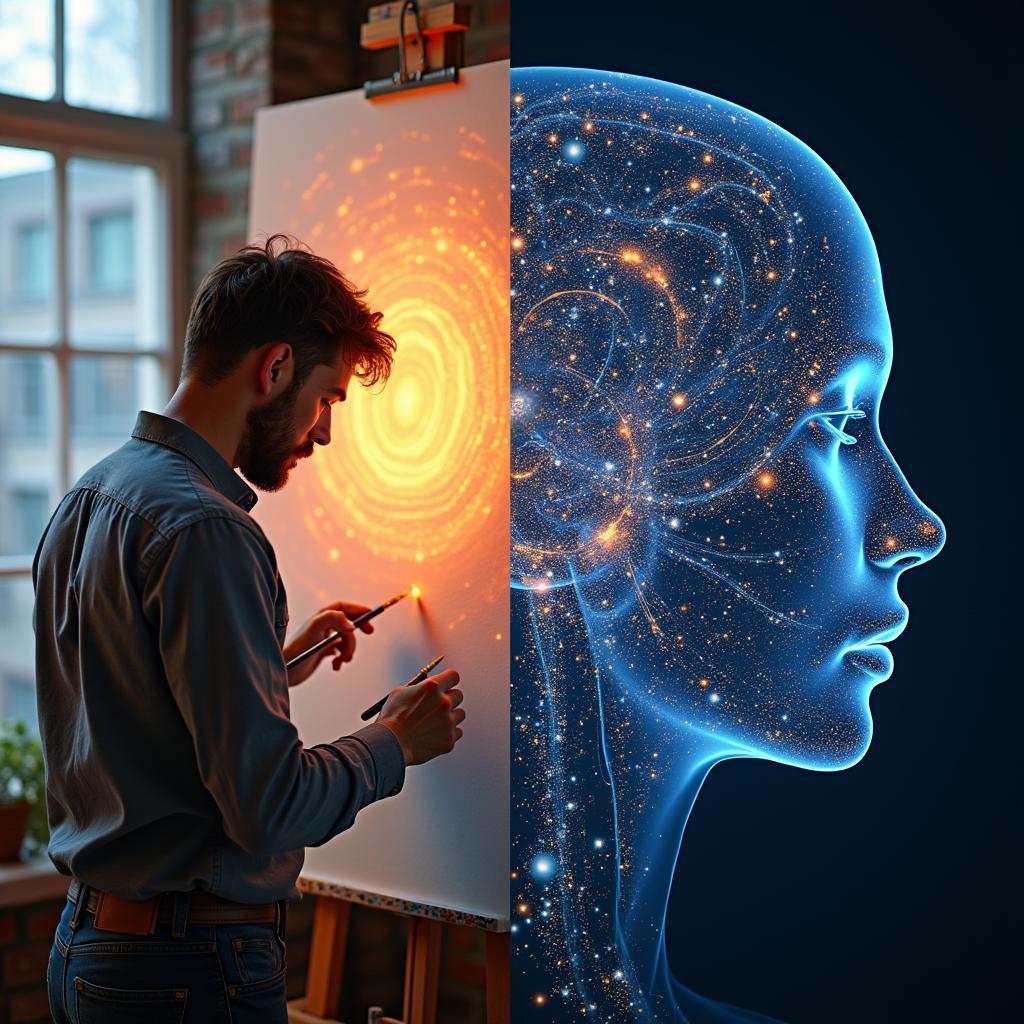 AI's impact on creative industries showing both human artists and AI-generated art
AI's impact on creative industries showing both human artists and AI-generated art
Analysis of the Question
- Topic: AI’s role in creative industries
- Task: Discussion + Opinion
- Key points to address:
- Arguments for AI replacement
- Arguments against AI replacement
- Personal stance with justification
Sample Essay 1 (Band 8.5)
The debate over artificial intelligence’s potential to supersede human creators has intensified as AI technology advances rapidly. While some argue that AI will eventually dominate creative fields, I firmly believe that human creativity will remain irreplaceable despite AI’s growing capabilities.
Those who support AI’s eventual dominance in creative industries present compelling arguments. Advanced AI algorithms can now generate artwork, compose music, and write content at an unprecedented speed and scale. For instance, The impact of AI on creative jobs has already shown that AI can produce commercially viable creative works in seconds, potentially revolutionizing production efficiency. Moreover, AI systems can analyze vast databases of existing art and literature to create new works that appeal to popular taste.
However, I align with those who believe human creativity cannot be fully replicated by machines. The essence of human artistic expression stems from lived experiences, emotional depth, and cultural understanding that AI fundamentally lacks. While The impact of AI on cultural industries demonstrates technological advancement, it also highlights AI’s inability to truly innovate or create meaningful artistic statements. Furthermore, human creators draw inspiration from personal struggles, societal issues, and complex emotional interactions – elements that machines cannot authentically experience or convey.
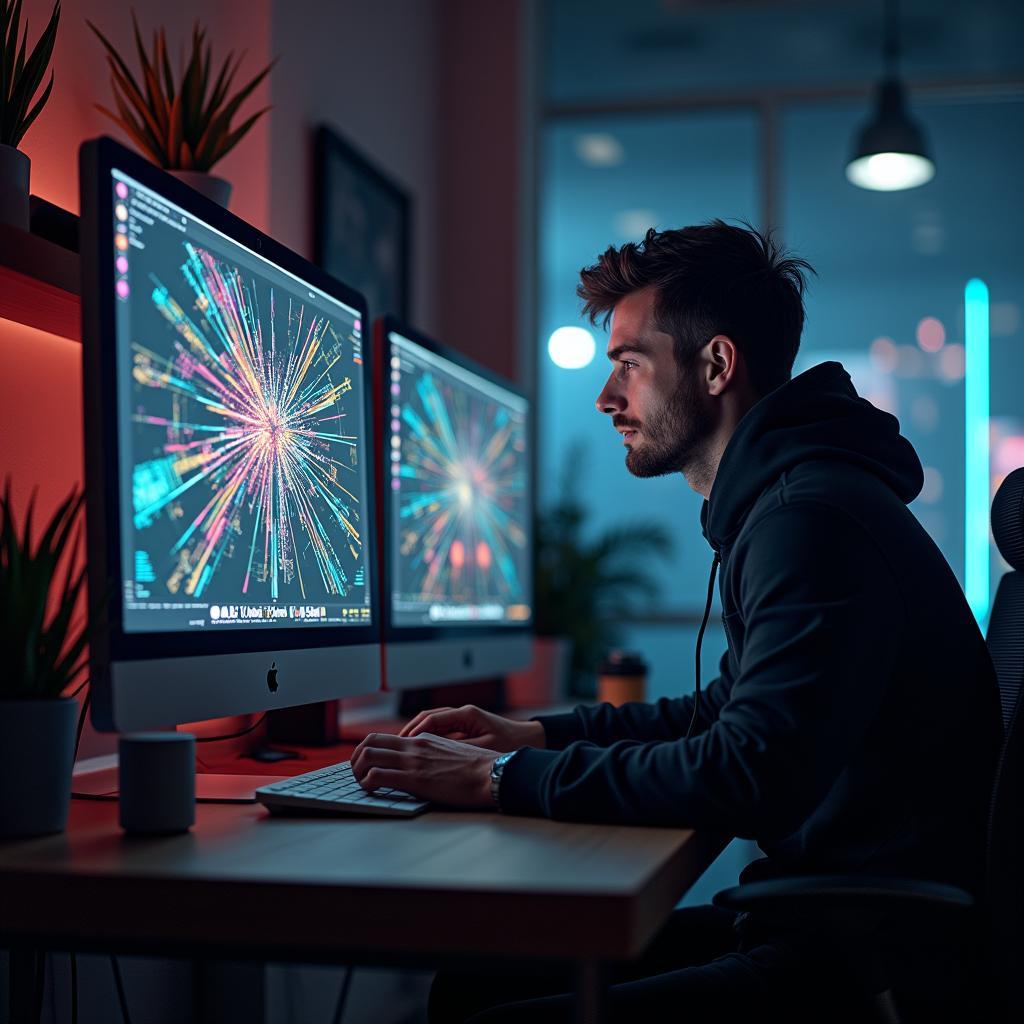 Human artists collaborating with AI tools in creative process
Human artists collaborating with AI tools in creative process
In my view, the future lies in collaboration rather than replacement. AI will likely evolve into a sophisticated tool that enhances human creativity rather than supplanting it entirely. This synergy could lead to unprecedented artistic innovations while preserving the irreplaceable human elements of creativity. Creative professionals might use AI to handle technical aspects while focusing on conceptual and emotional elements that require human insight.
In conclusion, while AI will undoubtedly transform creative industries, it will serve as a powerful tool rather than a replacement for human creators. The unique aspects of human creativity – emotional depth, lived experience, and cultural understanding – will continue to be invaluable in artistic expression.
(Word count: 309)
Sample Essay 2 (Band 6.5)
Nowadays, there is a big discussion about whether AI can replace human artists or not. Some people think it will happen, but others disagree. I will discuss both sides and give my opinion.
On one hand, AI is becoming very powerful in creating art and music. It can make pictures and songs very quickly, and sometimes they look and sound quite good. For example, many companies now use AI to make basic designs and write simple stories. This saves time and money. Also, AI can learn from millions of artworks to create new ones that many people like.
However, I think AI cannot replace human artists completely. Human creativity comes from real feelings and experiences that machines don’t have. When artists make something, they put their emotions and personal stories into their work. This makes the art special and meaningful. Also, humans can understand culture and society better than AI, which helps them make art that connects with people.
I believe AI will be a helpful tool for artists but won’t replace them. Artists can use AI to do simple tasks faster, but they will still be needed for making art that has real meaning and emotion. This way, both AI and humans can work together to make better art.
In conclusion, while AI is good at making basic creative works, it cannot replace human artists because art needs human feelings and understanding. The best solution is to use AI as a tool to help human artists work better.
(Word count: 219)
Key Vocabulary
- supersede (v) /ˌsuːpəˈsiːd/ – to replace something, especially something older or less effective
- unprecedented (adj) /ʌnˈpresɪdentɪd/ – never having happened or existed before
- algorithms (n) /ˈælɡərɪðəmz/ – a set of rules that must be followed when solving a particular problem
- synergy (n) /ˈsɪnədʒi/ – the combined power of a group of things when they are working together
- innovation (n) /ˌɪnəˈveɪʃn/ – a new idea, method, or invention
High-scoring Sentence Patterns
- Complex Contrast: “While AI will undoubtedly transform creative industries, it will serve as a powerful tool rather than a replacement for human creators.”
- Conditional Perfect: “Creative professionals might use AI to handle technical aspects while focusing on conceptual and emotional elements that require human insight.”
- Parallel Structure: “The unique aspects of human creativity – emotional depth, lived experience, and cultural understanding – will continue to be invaluable in artistic expression.”
Feel free to practice writing your own essay on this topic and share it in the comments below. Focus on incorporating the vocabulary and sentence patterns provided while maintaining a clear structure and balanced argument.
